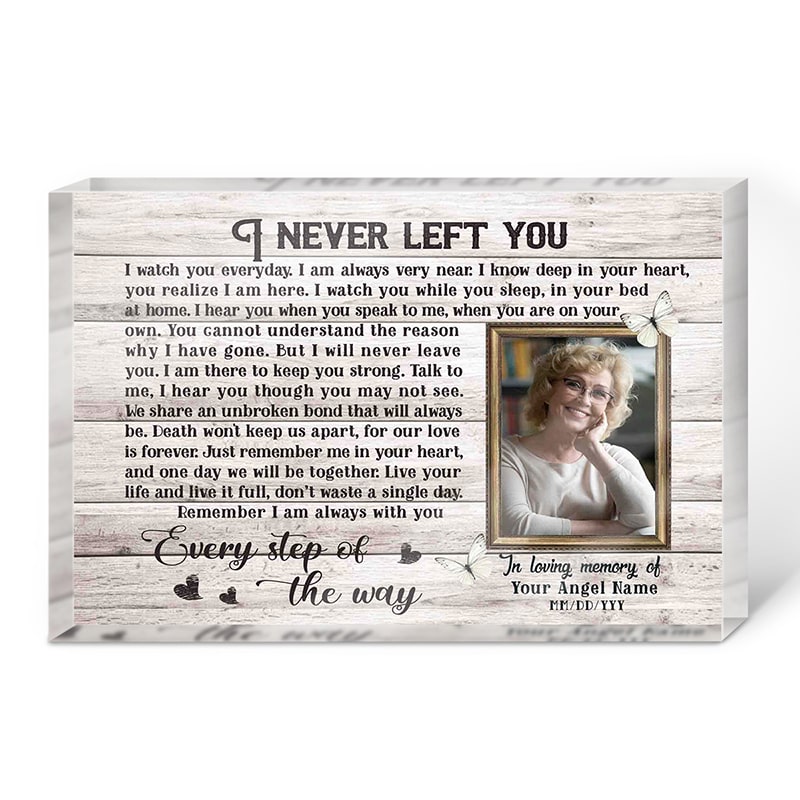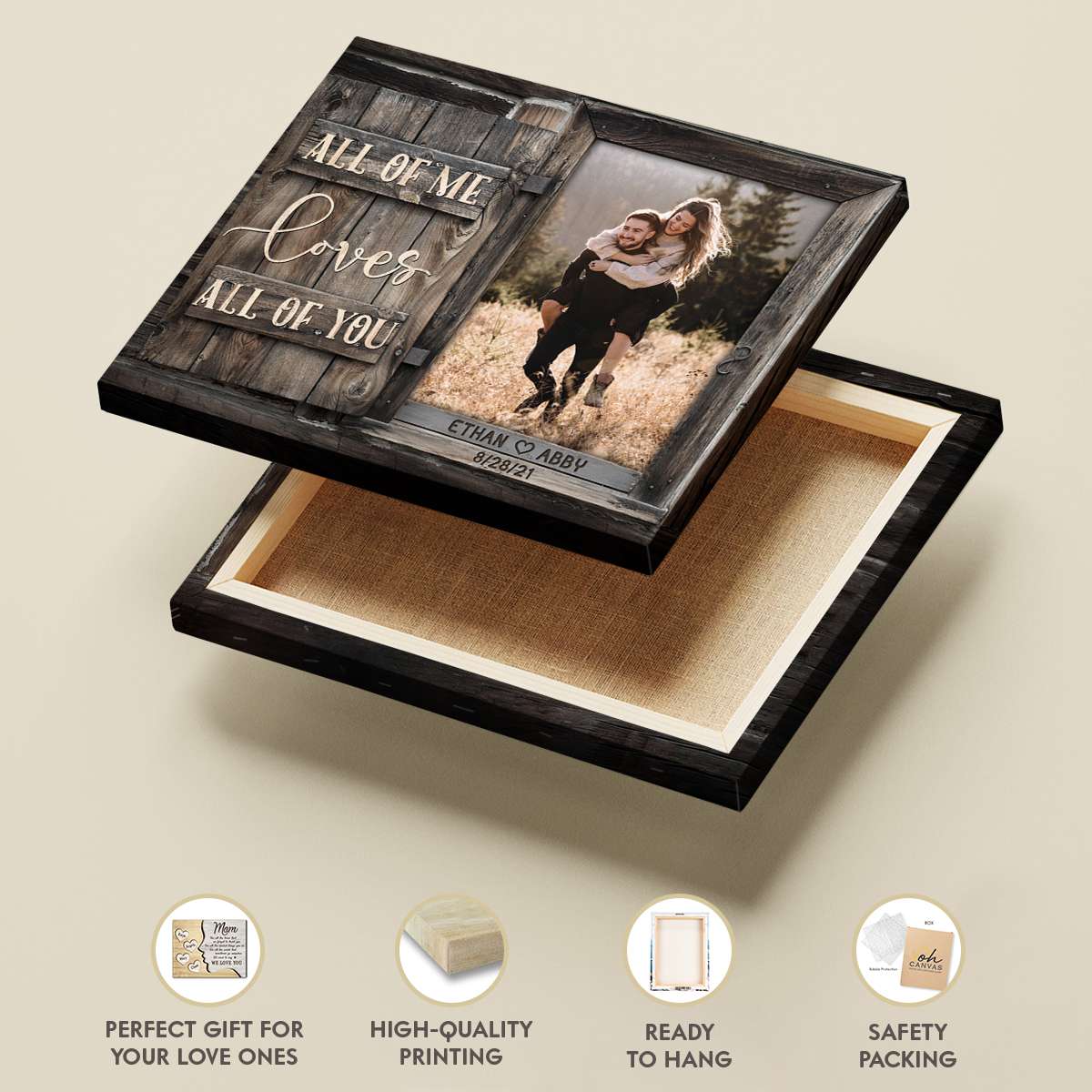Well, you’ve received a gift, and the excitement of unwrapping it has given way to a sinking feeling in your stomach. It’s okay to admit it – you don’t like the gift. But how to tell someone you don’t like their gift without hurting their feelings or causing unnecessary drama? This guide from Oh Canvas will provide you with practical strategies for handling this delicate situation, from crafting the perfect response to finding alternative solutions for unwanted items.
How to tell someone you don’t like their gift without hurting
Say “thank you” first

Before you address your feelings about the gift itself, always start by expressing genuine gratitude. Acknowledge the thoughtfulness and effort behind the gesture. A simple “Thanks so much for your gift. I really appreciate you thinking of me” can go a long way in setting a positive tone.
Think about the thought behind the gift.
Consider the thought behind the gift and express your appreciation for it. Even if the gift itself isn’t perfect, the giver likely had a good reason for choosing it. You can acknowledge their thoughtfulness by saying something like:
- “You must have remembered how much I love cookies!”
- “Thank you for these colorful gloves; you know how important it is for me to keep my hands warm.”
Ask about the gift

Instead of focusing on your dislike of the gift, engage the giver in conversation about it. Ask them about where they found it, if they own it themselves, or how they suggest using it. This shifts the focus away from your feelings and onto the gift itself, making the conversation more comfortable.
For example, you could ask:
- “Do you have this CD too? What’s your favorite track?”
- “I’ve never seen socks like these before! Where did you get them? Do you have a pair yourself?”
By putting the conversational burden on the gift-giver, you take the pressure off yourself and make the interaction more enjoyable for both of you.
Tell a white lie if you’re comfortable.

Sometimes, a little white lie is the kindest option, especially if you’re dealing with a sensitive gift-giver or the relationship isn’t close enough for complete honesty. Find something positive to say about the gift, even if it’s just a small detail.
Example: “Thank you so much! The color of this scarf is beautiful. I’ll definitely find a way to incorporate it into my wardrobe.”
Just remember to avoid exaggerating your enthusiasm. Instead of saying it’s the “best present ever” or “I’ll use it every day,” stick to something like: “Thank you! What a great gift.” This way, you express gratitude for the considerate gesture without making promises you can’t keep.
Complete honesty if you’re close.
If the gift-giver is a close friend or family member, and they press you for your honest opinion, you can gently tell them the truth. Approach it with humor and lightheartedness, turning it into a shared joke rather than a serious issue. Remember, a less-than-perfect gift shouldn’t damage a strong relationship, but a lie could potentially create unnecessary complications.
React to a gift you do not like emotionally.
Your nonverbal cues are just as important as your words. These subtle signals can go a long way in softening your message and conveying your appreciation.
Make eye contact.

Maintain eye contact with the gift-giver while expressing your gratitude. While you might not be able to muster genuine admiration for the gift itself, focus on appreciating the person’s kindness and the thought behind their gesture.
Smile naturally if you can
If you’re good at expressing emotions, offer a genuine smile or beam at the gift-giver. Remember, their intention was to bring you joy, and that in itself is a gift worth appreciating. However, don’t force a smile if it doesn’t feel natural. An insincere expression can be easily detected and may make the situation more awkward.
Hug for thanks

If you find it difficult to hide your disappointment, a heartfelt hug can be a genuine way to express gratitude to the gift-giver. If you’re comfortable with physical affection, embrace them immediately after opening the present. This gesture communicates appreciation for their love and effort, even if the gift itself isn’t your favorite.
What to do after receiving the gift you don’t like
Send a thank-you note.

A thank-you note is especially important for gifts you’re not thrilled about, as it reassures the giver you appreciate their gesture. Send it about a week after receiving the gift, focusing more on their thoughtfulness than the item itself. Keep your comments vague, perhaps mentioning you’re “enjoying it.”
For example:
- “Thanks so much for coming over. I really appreciate the effort you put into knitting that gift – thanks again.”
- “Just wanted to send my thanks for coming over the other night. I’m so glad you went out of your way to get me a gift, and I’m happy to have another dress in my drawer.”
Exchanging the gift

If the gift came with a gift receipt, this is the easiest and most straightforward option. Simply take the gift back to the store and exchange it for something you’d prefer or store credit.
If there’s no gift receipt, you can try contacting the store directly and explaining the situation. Some stores may be willing to offer an exchange or store credit even without a receipt, especially if the gift is new and unused.
Regifting
Regifting is often a good option for generic items like candles, home decor, or gift baskets. It can also be a thoughtful way to share a gift that you simply don’t have space for or wouldn’t use yourself.
Make sure the gift is in new or like-new condition, and choose a recipient who would genuinely appreciate and use it. Avoid regifting within the same social circle, and never re-gift something that was handmade or personalized.
Donating

Donating an unwanted gift to charity is a win-win solution. It allows you to give back to the community and ensures that the gift goes to someone who will truly appreciate it.
Consider donating to a cause that is meaningful to you or aligns with the gift-giver’s interests. For example, if the gift is a toy, you could donate it to a children’s hospital or a local toy drive.
How to avoid receiving a bad gift again

If you have an upcoming birthday, holiday, or special occasion, consider creating a wish list on a gift registry website or simply make a list and share it with your loved ones. This gives them a clear idea of what you actually want and need.
You can also drop hints about presents you like or need when talking to the gift-giver. For instance, you could mention a new hobby you’ve picked up, a book you’re interested in, or an item you’ve been eyeing at a store.
>> Read more:
- How to Choose a Gift That Makes You the Best Gift-Giver Ever
- Step-by-Step Guide on How to Wrap a Gift Perfectly
- Gift Wrapping Mastery: How to Make a Gift Bag Like a Pro
Oh Canvas believes that knowing how to tell someone you don’t like their gift is all about finding the balance between honesty and kindness. It’s about acknowledging their effort while gently steering them towards gifts you’ll truly love in the future. By approaching the situation with empathy, clear communication, and a willingness to find solutions, you can turn an awkward moment into an opportunity for connection. Remember, the goal isn’t to hurt anyone’s feelings but rather to express your gratitude while also being true to your own preferences.












